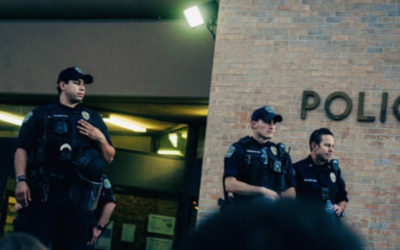


Post-structuralism is primarily indebted to thinkers of the European “conservative revolution” led by Nietzsche and Heidegger.
Where Marxism is built on hopes for reason, revolution and social progress, post-structuralist thinkers roundly reject such optimistic “grand narratives”.

JobKeeper loophole will tempt thousands of Australians to rort the system, accountants warn
Accountants focusing on "sole traders" seems like the cry of "dole bludgers" yet again. It seems a distraction and hardly a focus on Corporations that have been getting away with wage theft, superannuation theft, tax theft and a raft of other crimes that outweigh anything a few sole traders might attempt. How much compensation does QANTAS get for Job Keeper Coles or Woolworths?
There an accounting, law, and lobbying industry in place that helps assist that sole traders can't afford to access along with an Abbott government if you recall who dismissed 3,500 skilled and trained tax investigators from the ATO and have now gone to the other side. (ODT)
There appears to be a large loophole in the assessment of who is eligible for the extended JobKeeper payment, and tax experts worry it is going to be exploited by hundreds of thousands of Australians.
- The activity test for sole traders means they need to be "actively engaged in the business" for 20 hours a week to receive the full JobKeeper rate
- Accountants say it is unclear what "actively engaged" means; would thinking about the business while washing the dishes count?
- Some small business operators are profiting from JobKeeper and say they have already seen instances of people rorting the system
‘The only thing to fear is fear itself’ – the overreach of Australian anti-terror laws
Instead
of crafting policies to tackle causes rather than symptoms of issues,
Australian leaders have used terror laws to turn social and national
problems into security issues that demand a military response. Allan
Behm investigates.
Security, then, derives from the confidence we have as a nation that we can provide all the afore mentioned. And because we live in an increasingly interconnected world, the nation’s foreign policy is an essential vehicle for delivering the community’s economic, social and security aspirations. That foreign policy is transacted through diplomacy.
As Hans Morgenthau wrote more than 70 years ago, “of all the factors that make for the power of a nation, the most important is … the quality of diplomacy”. Diplomacy invites discussion, negotiation and conciliation.
Of course, government must have the ability to respond militarily if the state is subject to armed aggression to keep citizens safe. But nation building, the exercise of democratic rights and the strengthening of democratic institutions are predominantly civilian responsibilities. Securitisation and its concomitant, militarisation, are fundamentally anti-democratic.
Security, then, derives from the confidence we have as a nation that we can provide all the afore mentioned. And because we live in an increasingly interconnected world, the nation’s foreign policy is an essential vehicle for delivering the community’s economic, social and security aspirations. That foreign policy is transacted through diplomacy.
As Hans Morgenthau wrote more than 70 years ago, “of all the factors that make for the power of a nation, the most important is … the quality of diplomacy”. Diplomacy invites discussion, negotiation and conciliation.
Of course, government must have the ability to respond militarily if the state is subject to armed aggression to keep citizens safe. But nation building, the exercise of democratic rights and the strengthening of democratic institutions are predominantly civilian responsibilities. Securitisation and its concomitant, militarisation, are fundamentally anti-democratic.
Under the current LNP Government there has been little or no sign that diplomacy was at the forefront. Morrison reminds us of the days we were ready to to do what it takes to please America and an America lead by Donald Trump



The unconventional charity run by Scott Morrison's 'dear friend' Leigh Coleman
“A company founded and run by a man the prime minister, Scott Morrison, describes as “a very dear friend” has received more than $43m in government contracts since 2015, mostly from defence, while being a registered charity helping Indigenous businesses with advice.



No comments:
Post a Comment